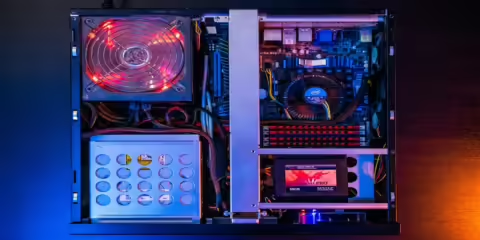Contents
Pay and benefits are important to most employees, but for many, they’re not the most important driver of motivation and engagement. Rather, what your employees may crave most is recognition. Pay and benefits are part and parcel of most jobs, but it’s sadly a rare employer that can make employees feel valued, seen, and heard.
If you want your employees to remain engaged, focused, productive, and positive about their work, you need to give them the recognition they crave. Employees need to feel valued for their contributions and treated like real people, not just cogs in a machine.
Establish Objective Performance Metrics
Employee recognition programs can easily turn into popularity contests, especially when employees vote to choose winners. Employees appreciate being recognized, but they want recognition programs with objective metrics based on clear and understandable criteria that relate directly to how they do their jobs and how they help meet the needs of the company. Establish clear criteria for employee recognition and keep those criteria the same from one recognition period to the next.
Foster a Culture of Recognition
Recognition is an important part of a healthy company culture. You need to foster a company culture in which managers do not skimp on the praise, and one in which peers are encouraged to recognize the contributions of their peers. Provide managers with free and low-cost, easy options for employment recognition. Train them on employee recognition best practices; remind them of important dates like Administrative Professionals’ Day, when employees will be expecting some form of recognition; and give them access to a tips binder, calendar, or other resource for recognition ideas.
Make It Easy to Recognize Top Performers
The easier it is to spread some recognition in your organization, the more likely your employees will be to recognize one another. Employee recognition platforms make it easy for managers to offer recognition to their subordinates, and for peers to recognize their colleagues. They make the recognition process more transparent, and can help managers identify not just top performers but those who could use some help.
Remember the Little Things
 An occasional grand gesture should definitely form part of your employee recognition plan. Everyone loves a nice bonus or a plaque bestowed in front of the whole department. Lots of people love to be recognized in an ostentatious way, such as at an awards ceremony. But that’s just one facet of effective employee recognition.
An occasional grand gesture should definitely form part of your employee recognition plan. Everyone loves a nice bonus or a plaque bestowed in front of the whole department. Lots of people love to be recognized in an ostentatious way, such as at an awards ceremony. But that’s just one facet of effective employee recognition.
Grand gestures can’t be everyday gestures, and when it comes to feeling appreciated, it’s often the small gestures that make the most difference. A note expressing gratitude, a small thoughtful gift, an extra day off or permission to leave early on a Friday can make employees feel appreciated for their day-to-day contributions. It’s important to keep the praise and recognition frequent and steady, or else employees may begin to resent recognition events that feel performative and insincere. When employees don’t believe in the sincerity of your recognition program, it can actually demotivate them more, which is why handing out praise and gratitude on the regular via small gestures is so important.
Give Praise in a Timely Fashion
When someone does a good job on something, don’t wait until their annual review to praise them for it. Make your thoughts known now. If you wait for the annual review to give praise, you’re encouraging your employees to develop resentment as they believe their contributions aren’t being seen throughout the year, and you may even forget to recognize some of what your employees do.
No, you need to hand out your praise when it’s still relevant to the situation at hand. Give recognition immediately after the good job is finished, so your employees don’t become resentful. You’ll have more of them sticking around to complete the annual review process, that’s for sure. There are various ways that you can show your appreciation to your employees, such as Employee Awards or benefits.
Connect Recognition to the Larger Company Picture
Employees want to know how their hard work furthers and supports the organization as a whole. Recognition means a lot more to people when it’s connected to a specific achievement or to a larger goal. Furthermore, telling employees what they’re being recognized for and how their behavior has benefited the company helps them better understand how to continue performing well in the future.
If you want your employees to stick around as long as possible and do their best work for your company, you need to make sure you’re recognizing their contributions and letting them know how grateful you are for your hard work. A simple thank you can do so much for a person’s motivation – and it’s absolutely free.



